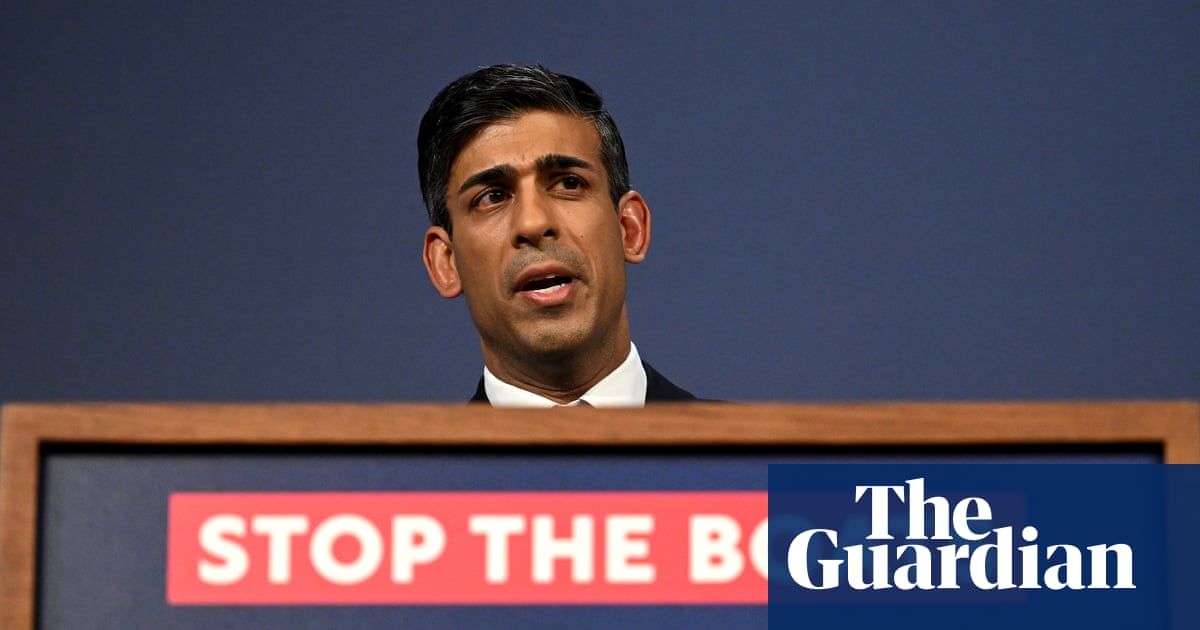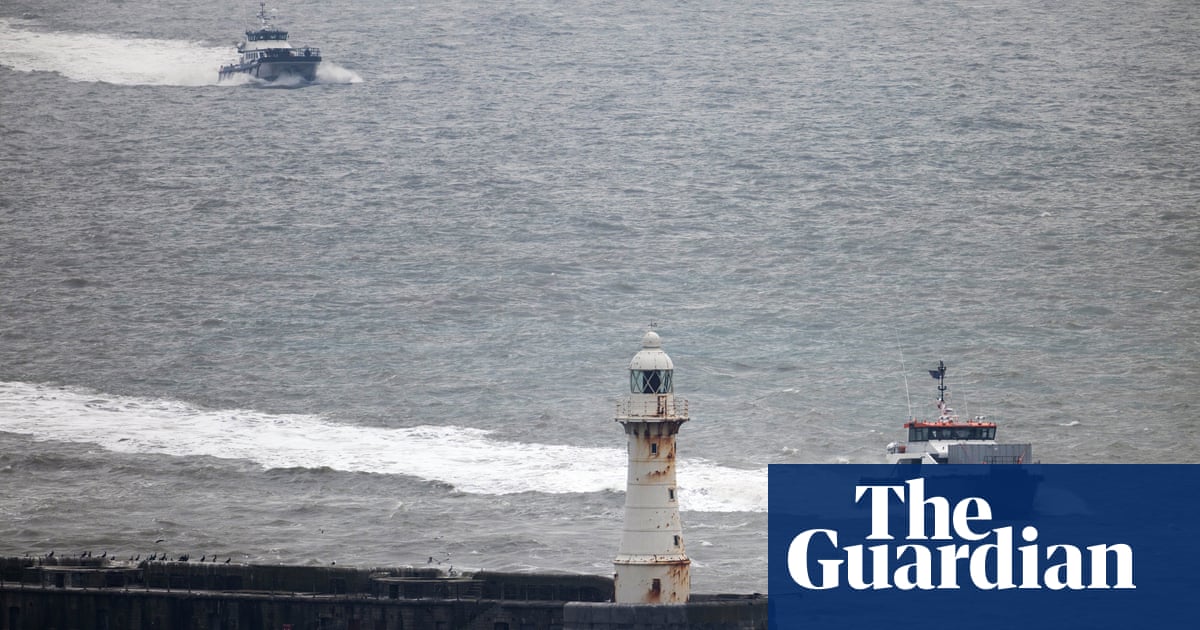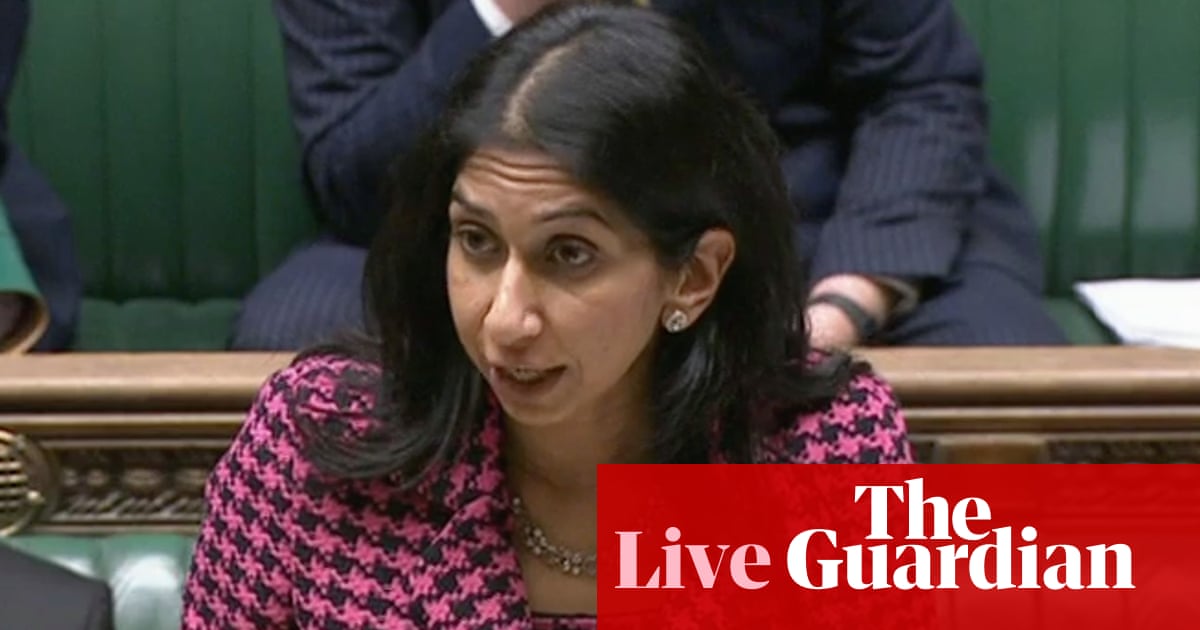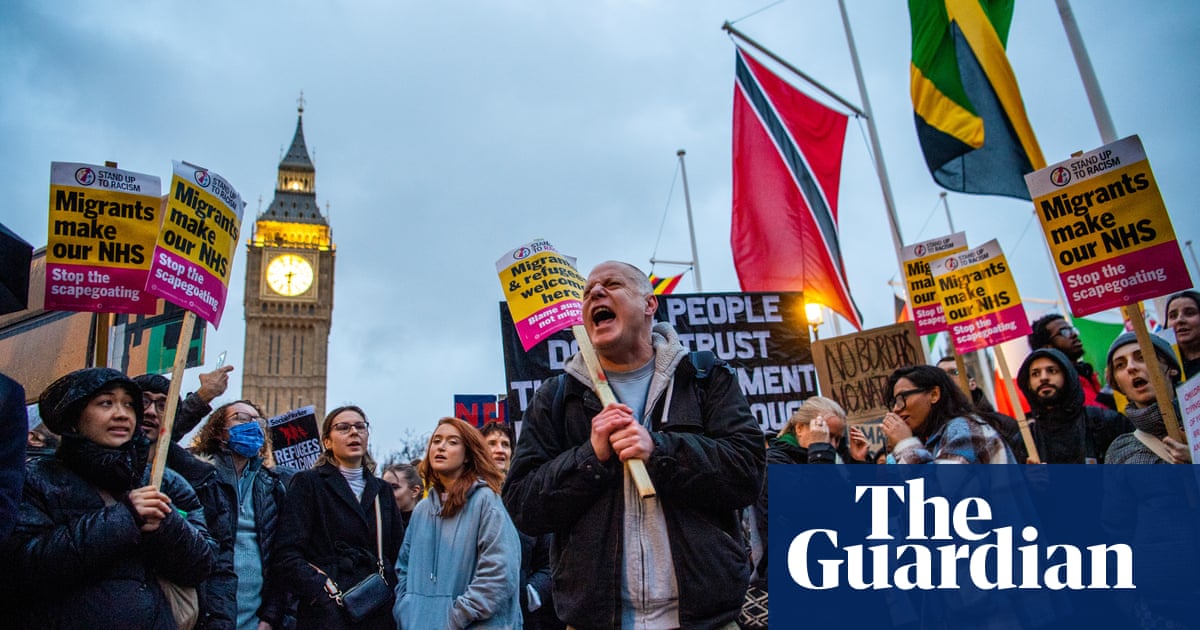
The government’s flagship asylum bill passed its third reading in the Commons on Wednesday night and will now go to the Lords despite criticism from several leading Conservatives including Theresa May.
The illegal migration bill, which is supposed to change the law so that those who arrive in the UK by irregular means can be removed to a third country such as Rwanda, was passed by 289 votes to 230. The bill is expected to face greater opposition in the Lords where it could be amended or delayed.
May had warned that more people will be left in slavery in the UK by government reforms aimed at deterring migrants from crossing the Channel. The former prime minister, who held talks with the government over her concerns, described an amendment tabled by ministers as a “slap in the face” for those who care about the victims of modern slavery and human trafficking.
Temporary protection against removal from the UK is currently given to suspected victims of modern slavery or human trafficking while their case is considered. The bill removes this protection for those judged to have entered the UK illegally.
There is an exception for people who are cooperating with a criminal investigation, but the government amendment adds that it is not necessary for a person to be present in the UK to cooperate with such proceedings unless there are “compelling circumstances”.
May said: “Sending victims back to their own country or a third country like Rwanda will simply, at best, make them feel less secure, and therefore less able or willing to give the evidence needed, and at worst will drive them back into the arms of the traffickers and slave drivers.
“The Modern Slavery Act gave hope to victims; this bill removes that hope. I genuinely believe that, if enacted as it is currently proposed, this bill will leave more people, more men, women and children, in slavery in the UK.”
Former Conservative party leader Iain Duncan Smith warned of “unintended consequences” in the bill in relation to modern slavery victims.
The former attorney general Sir Geoffrey Cox questioned amendments to the bill that would allow ministers to override the European court of human rights rule 39 interim measures. Such a ruling blocked the government’s first attempt to deport asylum seekers to Rwanda last year.
Cox said there was already no obligation to follow the measures, only an “indication”, adding: “Why then does it need legislation, if what in fact is not being asked, that this House should approve quite consciously and deliberately a deliberate breach of our obligations under the [European] convention?
“That is the truth. The minister could ignore it and it would be a matter between states, but this provision invites this House to give legislative authority to the minister doing that if she chooses to do so.”
Earlier, the UN’s refugee agency contradicted claims by Suella Braverman, who said Sudanese asylum seekers escaping the conflict have “various” legal ways to reach the UK.
The home secretary told Sky News on Wednesday morning there was “no good reason” for those fleeing Sudan to cross the Channel in small boats and urged asylum seekers to contact the UN High Commissioner for Refugees [UNHCR].
“If you are fleeing Sudan for humanitarian reasons, there are various mechanisms you can use. The UNHCR is present in the region and they are the right mechanism by which people should apply if they do want to seek asylum in the UK,” Braverman said.
But the UNHCR said it was “aware” of the statement and “wished to clarify” that there is “no mechanism” for refugees to seek asylum in the UK through the organisation.
“There is no asylum visa or ‘queue’ for the United Kingdom,” it said. The UNHCR added that an “overwhelming majority” of refugees have no access to safe and legal routes to the UK, noting that only a “very small” number seek asylum in the UK.












